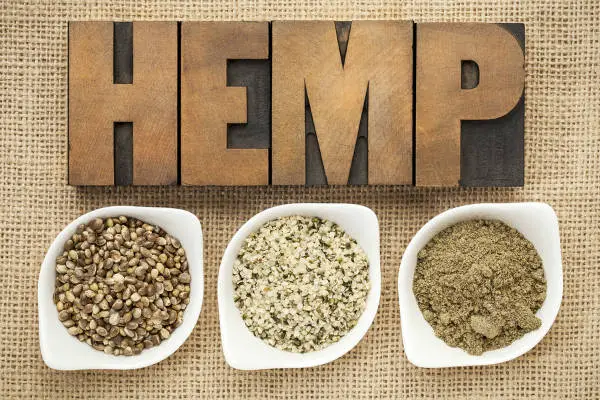Essential fatty acids and essential amino acids crucial for good health are some of the substances you can find in hemp seeds. Hemp protein is packed with all 20 amino acids and the 9 essential amino acids are part of this group too.
Although the body produces many amino acids, there are nine of them that have to be taken through food and hemp includes all of them. In case you don’t take foods which contain these essential amino acids, your health will deteriorate.
Amino acids are the foundation for the formation of many proteins. The essential amino acids found in hemp are very easy to digest. In addition, hemp is rich in vitamin A, B (several B vitamins), E and D, iron, calcium, sodium and dietary fiber.
Hemps seeds are considered to be one of the vegetable sources that have incredible amounts of protein. What is interesting is that the proteins found in hemp are almost identical to those found in natural form in our body. So, hemp can give you the necessary amount of amino acids in order for the body to produce protein. Both albumin and globulin (edestin) are part of hemp protein. About 65% of protein found in hemp seeds consists of Edestin – a globulin protein that can be found exclusively in hemp seeds.
Hemp is one of the richest sources of magnesium in the nature. According to some statistics about 2/3 of people in the United States don’t have enough magnesium in their system. This is one of the most important minerals because it is involved in more than 300 different biochemical reactions crucial for proper functioning of the body. Only half a cup of pumpkin seeds will satisfy 92% of your daily needs for magnesium.
Hemp also contains omega fatty acids. What is even more interesting is that hemp comes with a perfect ratio of omega fatty acids – 1 omega-6 fatty acid to 3 omega 3 fatty acids. Any other ratio in which omega-6 is higher or lower won’t bring benefit for the body. Sadly, most Americans practice 1:50 ratio. The reason is simple – you consume much more processed food and vegetable oils than advised. These unnatural ratios lead to inflammation that ultimately results in many diseases and acceleration of the aging process.
Hemp doesn’t require some special conditions to be grown and it is GMO free. This plant is vey resistant which means that it doesn’t require frequent pest control. In addition, the American climate is perfect for its growth. The Hemp Industries Association claims that only 8 out of 100 pests can result in problems for hemp. In other words, hemp can be grown without pesticides, fungicides or herbicides. This plant grows very fast, so it should be considered as a substitution to some other foods.

The Health Benefits of Hemp
- Supports organ function.
- Balances hormones.
- Stabilizes blood pressure.
- Improves cardiovascular system.
- Eases PMS symptoms.
- Increases your energy levels.
- Hemp seed oil has the ability to improve your skin and hair because the oil reaches the inner layers of your skin and supports cell growth.
- Aids with weight loss.
- Aids with digestive problems because it is rich in soluble fiber.
Many nutritionists consider hemp to be a superfood. Hemp can be used in many different ways. According to an article published about 70 years ago, hemp has the potential to become a billion dollar worth crop. In the beginning of the 20th century, hemp was used for many other things like production of linens, ropes and even some American flags were made of hemp. However, in the beginning of the 1950s, growing of hemp was declared illegal in America because of its connection to marijuana.
Via Eco Watch
